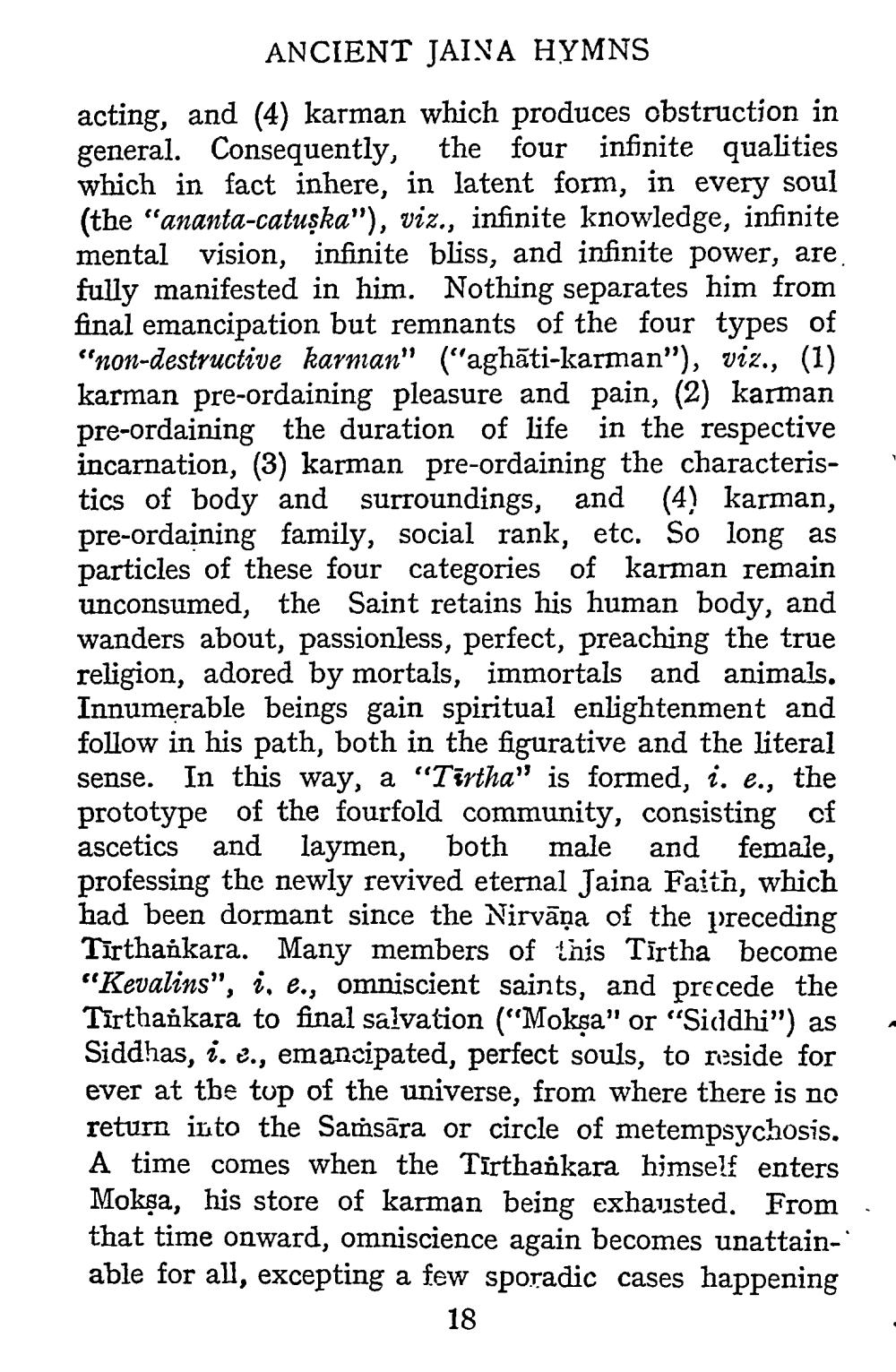________________
ANCIENT JAINA HYMNS
acting, and (4) karman which produces obstruction in general. Consequently, the four infinite qualities which in fact inhere, in latent form, in every soul (the "ananta-catuşka"), viz., infinite knowledge, infinite mental vision, infinite bliss, and infinite power, are fully manifested in him. Nothing separates him from final emancipation but remnants of the four types of "non-destructive karman” (“aghāti-karman”), viz., (1) karman pre-ordaining pleasure and pain, (2) karman pre-ordaining the duration of life in the respective incarnation, (3) karman pre-ordaining the characteristics of body and surroundings, and (4) karman, pre-ordaining family, social rank, etc. So long as particles of these four categories of karman remain unconsumed, the Saint retains his human body, and wanders about, passionless, perfect, preaching the true religion, adored by mortals, immortals and animals. Innumerable beings gain spiritual enlightenment and follow in his path, both in the figurative and the literal sense. In this way, a "Tīrtha" is formed, i. e., the prototype of the fourfold community, consisting of ascetics and laymen, both male and female, professing the newly revived eternal Jaina Faith, which had been dormant since the Nirvana of the preceding Tirthankara. Many members of this Tirtha become "Kevalins", i, e., omniscient saints, and precede the Tirthankara to final salvation ("Mokṣa" or "Siddhi") as Siddhas, i. e., emancipated, perfect souls, to reside for ever at the top of the universe, from where there is no return into the Samsara or circle of metempsychosis. A time comes when the Tirthankara himself enters Mokṣa, his store of karman being exhausted. From that time onward, omniscience again becomes unattainable for all, excepting a few sporadic cases happening
18




